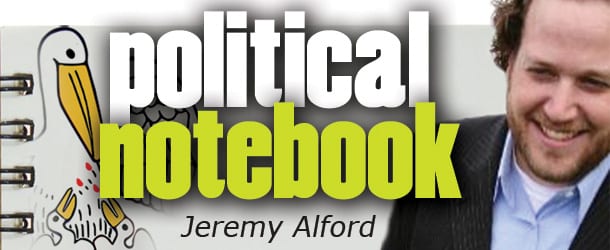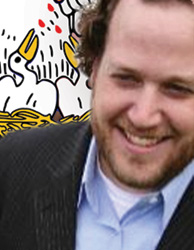Options.
That’s the buzzword coming from the fourth floor of the State Capitol, which is where Gov. John Bel Edwards and his staff work.
While there was some thought about a cuts-only special session this month, the Edwards Administration is heeding calls from lawmakers for revenue-raising options. Part of that strategy will include fees.
The governor is expected to call a 10-day special session beginning on Feb. 13. He alone will be able to set the agenda.
That’s important in terms of what kind of bills lawmakers can file. If the subject matter isn’t on Edwards’ agenda, the legislation can’t be introduced.
While fees represent a quick way the state can get cash during the final months of the fiscal year that ends on June 30, Edwards is taking a very nuanced approach to their role in the special session.
He plans to include fee increases and the creation of new fees on his agenda. But the governor will not personally make any proposals for particular fees.
Individuals and businesses pay fees for permits. Farmers and commercial fishermen pay fees that get channeled back into their industries. Practically every department and agency in the state relies on fees for operations.
From a political perspective, fees may serve as an easier pill than taxes for conservative lawmakers to swallow. The governor has indicated taxes are unlikely to be featured prominently in his special session agenda.
Just how far lawmakers can go with fees while facing a $304 million deficit remains to be seen.
The Dept. of Health and the Dept. of Environmental Quality both pushed for massive fee packages in the 2016 regular session. There were also proposed new fees or fee increases for state courts, the Office of Motor Vehicles, cemeteries, fishing guides, drones, pipeline operators, clemency investigators, architects and more than a dozen other categories.
The governor, however, appears to be interested in spending reductions and a key fund transfer. In particular, Edwards has proposed using $119 million from the state’s special savings account, known as the Rainy Day Fund, to help erase part of the deficit.
Kleckley Out For Treasurer
If there were any questions about state Sen. Neil Riser, R-Columbia, running for state treasurer in the fall, a few key staffing decisions he made recently should put all of that to rest.
Riser said in a recent interview that he’s hired Sally Nungesser as his fundraising coordinator and conservative operative Rhett Davis as his general consultant.
Jonathan Johnson, the state director for former Congressman Rodney Alexander, is also Riser’s first official staff hire for the not-yet-announced campaign.
Nungesser, for her part, is already hard at work. Riser’s treasurer campaign scheduled a fundraiser for the first day of the special session.
There should also be some official movement soon from Rep. Julie Stokes, R-Kenner, and Angele Davis, president and CEO of the Davis Kelley Group. Both women have been holding high-level meetings.
Former House Speaker Chuck Kleckley of Lake Charles, meanwhile, is out. He let friends and family know his decision a few days ago. “Thanks to all the kind people that have contacted me about running for state treasurer,” Kleckley said in a written statement. “While I enjoy public service and working for the people of Louisiana, my decision is to continue growing my governmental relations practice with the great team at Adams and Reese.”
Rep. John Schroder, R-Covington, had a team in place earlier this month before his official announcement for treasurer.
Jay Vicknair, who has consulted for former Lt. Gov. Jay Dardenne and former U.S. Sen. David Vitter, is serving as Schroder’s campaign manager. Alle Bautsch, who came up during former Gov. Bobby Jindal’s rise, is leading Schroder’s fundraising.
Lionel Rainey, fresh from working for U.S. Sen. John Kennedy’s 2016 campaign, is Schroder’s senior strategist. And John Diez, one of the architects of the Louisiana Committee for a Republican Majority, has been tapped to head up polling and research.
Other possible candidates include Derrick Edwards, a New Orleans attorney and quadriplegic; Rep. Paul Hollis, R-Mandeville; Sen. Eric LaFleur, D-Ville Platte; Speaker Pro Tem Walt Leger, D-New Orleans; retired Air Force Col. Rob Maness, of Mandeville; and Acadiana health care executive Gus Rantz, of Lafayette.
Political History: The First Woman Treasurer
No, it wasn’t former U.S. Sen. Mary Landrieu. She was the second woman to serve as Louisiana’s treasurer.
With a fall special election gearing up for state treasurer, this is a pertinent history question: Who was the first woman treasurer elected in Louisiana?
It was Mary Evelyn Parker, who died at the age of 94 on Jan. 17.
She was a trusted advisor to Gov. Earl Long. She served in several appointed positions in state government before moving to elected office. Before that, Parker stayed close to home in Allen Parish, working as the personnel director at Camp Claiborne and the editor of The Oakdale Journal.
She stepped into the political world in 1948 when Long asked her to voice his campaign’s radio commercials. In very short order, Long appointed her as the executive director of the Louisiana Dept. of Commerce and Industry and she ran, unsuccessfully, as the registrar of state lands.
Gov. John McKeithen also sought out Parker’s help when he ran for governor and won. Parker gave legendary speeches on behalf of McKeithen on the campaign trail. One of those speeches, “All That Glitters Is Not Gold,” was televised statewide. She came into her own during the campaign and warmly embraced the role of “hatchet woman.”
It was in 1967 that McKeithen put his weight behind Parker’s candidacy for treasurer.
Parker hired a young and untested consultant named Raymond Strother. Both built careers off that race. Strother became one of the best-known operatives in the South, and Parker served as treasurer until 1987.
Business Expecting Contingency Fee Bill
In this week’s episode of The LaPolitics Report podcast, Louisiana Assoc. of Business and Industry president Stephen Waguespack hinted at a legislative legal battle for the regular session that convenes in April.
Waguespack said his organization believes a bill could be introduced to ease some of the limitations on contingency fee legal contracts.
The debates over contingency fee agreements inked by the state have caught fire in recent years, pulling in governors, attorneys general, lawmakers, private attorneys and lobbyists.
The contingency fee arrangement, in broad strokes, usually involves a private law firm representing the state or a political body in exchange for part of a settlement, presumably to be awarded down the line.
State law prohibits any such payout unless it is authorized by the Legislature.
“We hear that there is a strong likelihood that there will be legislation filed, either overtly or covertly, to make it much easier to hire contingency fee attorneys without going through any kind of public bid or transparency, so that they can come on and sue industry in the state,” Waguespack said during the interview.
“We heard those bills are coming. So we’re going to be looking out for them and will engage on them. Obviously, we think that’s problematic policy.”
LCRM, LABI Eyes House Races
Director Kyle Ruckert said the Louisiana Committee for a Republican Majority is looking closely at the three open state House seats that will be up for special elections this year. LCRM’s leadership will soon decide how involved it wants to be in the contests, he said.
The group was originally founded by former U.S. Sen. David Vitter. It is credited with helping the GOP take control of the majority in both chambers in Louisiana.
LCRM is still firming up its plans for this year’s sessions, which at the very least will include a scorecard for how lawmakers voted, but which could also include more forms of outreach.
In addition, the regional political action committees for the Louisiana Assoc. of Business and Industry started conducting interviews for the three races.
Political History: Unelected Governors
Since 1824, Louisiana has seen 14 different governors sworn into office without going through a proper election.
The most recent instance occurred in 1939, when then-Gov. Richard W. Leche resigned in response to the so-called “Louisiana Scandals.” The scandals mostly boiled down to men in power stealing money. One graft involved the American Progress newspaper, a propaganda vehicle created by Huey P. Long. It allegedly skimmed payments from state employees.
When Leche stepped down, Earl Long, who was serving as lieutenant governor at the time, got a serious bump in status. Earl Long was the last man in Louisiana to be seated as governor without an election.
Four other governors managed to skip an election due to the death of their predecessors while serving in office.
Most of the other non-elected governors to serve Louisiana got there due to resignations — often delivered in shame — or Reconstruction-era politics.
For more Louisiana political news, visit www.LaPolitics.com or follow Jeremy Alford on Twitter @LaPoliticsNow.














Comments are closed.